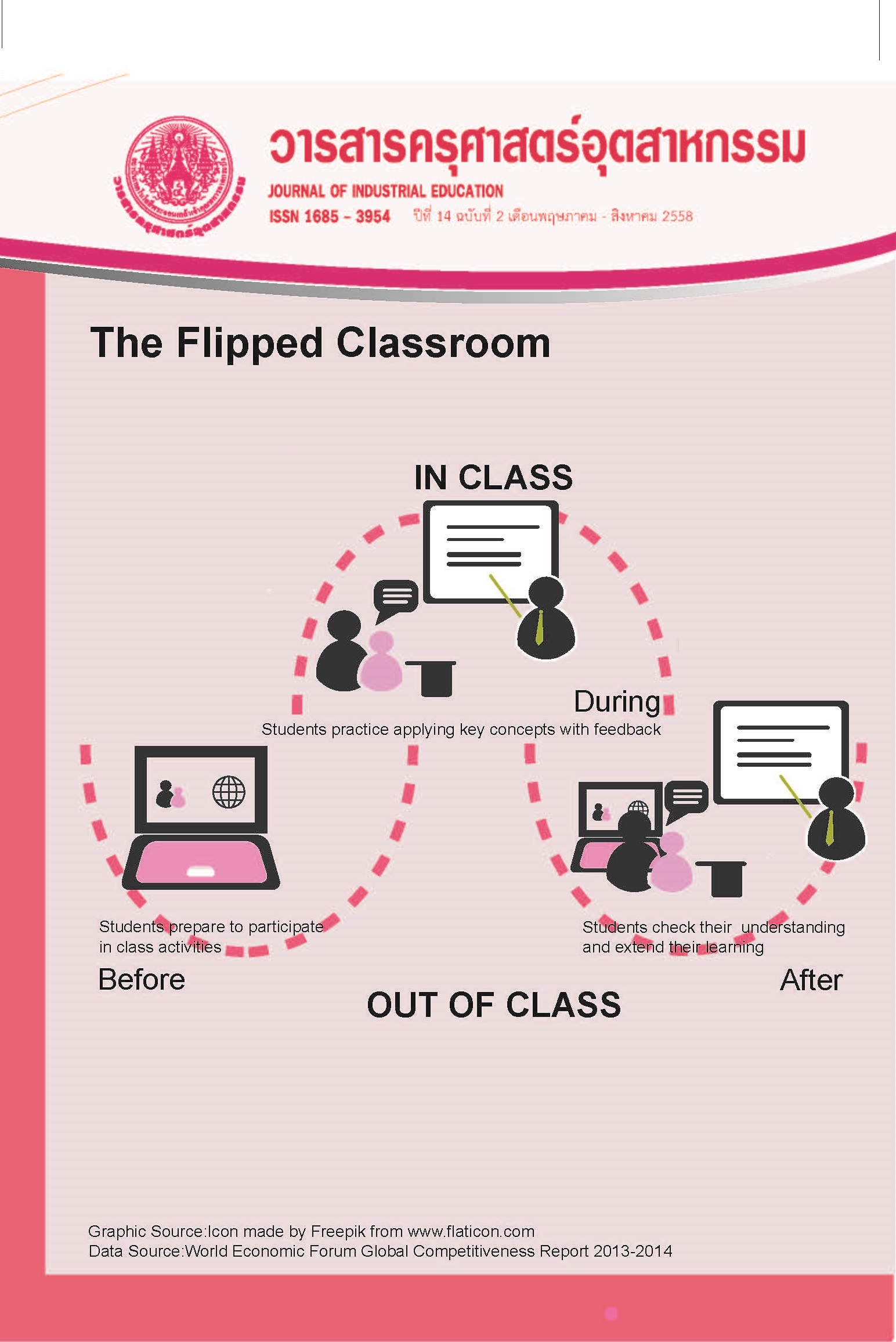Stimulating Sustainable Development of Eco-Industrial Town : A Case Study of Bangchan Industrial Estate
Main Article Content
Abstract
This research aimed to study the success factors of Bangchan industrial estate on the development of eco industrial town and to propose measures to promote a sustainable eco-industrial town. This research was a qualitative research focusing on in-depth interviews with related stakeholders, including representatives from Bang Chan Industrial Estate’s office, factories, local authorities and communities. The data obtained were analyzed using SWOT analysis and measures were proposed based on TOWS matrix analysis and Sustainable Balance Scorecards (SBSC) approaches. A strategy map was also presented in this paper.
The study found that the most important factors affecting the success in the development of Bangchan eco – industrial town included the participation of stakeholders, continuous improvement of activities implementation, and communication among staffs. The second most important factors were the commitment of the management, ability of personnel and the number of complaints, while the third most important factors were support of the budget, disclose of information from the factories and good teamwork of staffs. Based on SWOT analysis, it was found that, strengths of Bangchan industrial estate was clearly seen in the social aspect regarding the participation and good relations with communities. And a significant weakness was found in the management aspect, i.e., weak participation of staffs and entrepreneurs. From external factors assessment, opportunities for eco-industrial development was found in the environmental and the management aspects, i.e., advancement of research in environmental management and commitment for the development at the national level. But there was biggest obstacle in the management aspect as well, i.e., lack of a clear direction in implementation and monitoring at the national level. Measures to promote the sustainable eco-industrial town were as follows: 1) learning and growth perspective: measures included good planning and clear development of policy. and capacity building for related stakeholders 2) internal process perspective: measures included improvement of production processes with state-of-the-art knowledge and technologies and monitoring environmental quality according to regulations 3) effectiveness perspective: measure included, concentration on eco-efficiency. and 4) social and environmental perspective: measures included promotion of community participation. And improve corporate image of the industrial estate.
Article Details
"The opinions and contents including the words in papers are responsibility by the authors."
"ข้อคิดเห็น เนื้อหา รวมทั้งการใช้ภาษาในบทความถือเป็นความรับผิดชอบของผู้เขียน"
References
Industrial Estate Authority of Thailand. 2012. The specification and criteria as indicators of. "Eco Industrial Town". Retrieved 29 November, 2014, from https://www.ieat.go.th/eco/upload/a41b3yl2axienn9vmenuindocPublicManualNov2012.pdf
[2] การนิคมอุตสาหกรรมแห่งประเทศไทย. (ม.ป.ป.). การดำเนินงานของการนิคมอุตสาหกรรมแห่งประเทศไทย เพื่อสนับสนุนการ พัฒนาอุตสาหกรรมเชิงนิเวศ. ค้นเมื่อวันที่ 26 พฤศจิกายน 2557. จาก https://iei.or.th/media/file/Annual%2057/15% 20Oct%202014/Room2/file%20pp%20for%20bitec%2015102014%20rev%20%E0%B8%A3%E0%B8%9C %E0%B8%81%20%E0%B8%9A%E0%B8%AA%20rev141057.pdf
[3] จิรประภา อัครบวร. 2552. แผนที่ยุทธศาสตร์ Strategy Map. กรุงเทพฯ: ก.พลพิมพ์
[4] Shahzad Trading & Consulting FZE. ม.ป.ป. SWOT & TOWS Analysis Retrieved 8 July, 2015, from https://www.shahzadtc. com/pdf/SWOT TOWS.pdf
[5] Stefan Schaltegger and Florian Lüdeke-Freund, 2011. The Sustainability Balanced Scorecard Concept and the Case of Hamburg Airport. Centre for Sustainability Management (CSM)
[6] พสุ เดชะรินทร์. 2547. เส้นทางจากกลยุทธ์สู่การปฏิบัติด้วย Balanced Scorecard และ Key performance Indicators. กรุงเทพฯ : จุฬาลงกรณ์มหาวิทยาลัย
[7] พงศธร ทิมเจริญ. 2548. ปัจจัยของความสำเร็จของการดำเนินโครงการบริหารจัดการคนเก่งในองค์กร. สารนิพนธ์วิทยาศาสตร มหาบัณฑิต. สถาบันบัณฑิตพัฒนบริหารศาสตร์.
Timcharean.P 2005. Key Factor Success of Project management of the man in organizations. Master of Science (Human Resource and Organization Development).National Institute of Development Administration.
[8] วันชัย มีชาติ. 2557. การบริหารองค์การ. พิมพ์ครั้งที่ 7. กรุงเทพฯ: สำนักพิมพ์แห่งจุฬาลงกรณ์มหาวิทยาลัย
[9] จุฑารัตน์ ชมพันธุ์. 2555. . การวิเคราะห์หลัก “การมีส่วนร่วมขอประชาชน” ใน “The Public Participation Handbook: Making Better Decisions through Citizen Involvement” การจัดการสิ่งแวดล้อม, 8(1), น.123-140.
Chomphun.J. 2012. The Analysis of “The Public Participation” in “The Public Participation Handbook: Making Better Decisions through Citizen Involvement”. Journal of Environmental Management, 8(1), p 123-140.
[10] V.Panyathanakun, S.Tantayanon, C.Tingsabhat and K. Charmondusit. 2013. Development of eco-industrial estatesin Thailand: initiatives in the northern region community-based eco-industrial estate. Journal of Cleaner Production, 51 (2013), p 71-79.
[11] พิพัฒน์ นนทนาธรณ์. 2553. การจัดการความ รับผิดชอบต่อสังคมขององค์กร.กรุงเทพฯ : ธิงค์ บียอนด์ บุ๊คส์ จำกัด.NontanaThorn.P. 2009. Corporate Social Responsibility Management. Bangkok: Think Beyond Book Co.,Ltd.
[12] เขมมารี รักษ์ชีพ. 2553. ทฤษฎีองค์การ. กรุงเทพฯ : ทริปเพิ้ล กรุ๊ป.
[13] ณัฐวุฒิ โรจน์นิรุตติกุล. 2554. การจัดการทุนมนุษย์: กลยุทธ์ทางการแข่งขันที่ยั่งยืน.วารสารครุศาสตร์อุตสาหกรรม, 10(2), น.1- 6.
Rhotniruttikul.N. 2011. Human Capital Management: Sustainable Competitive Strategy. Journal of Industrial Education, 10(2), p. 1-6.
[14] สมชาย มุ้ยจีน. 2557. แนวทางการพัฒนาเมือง อุตสาหกรรมเชิงนิเวศในพื้นที่เทศบาลเมืองมาบตาพุด. วิทยานิพนธ์วิทยา ศาสตรมหาบัณฑิต.สถาบันบัณฑิตพัฒนบริหารศาสตร์.
Muyjeen.S. 2014. Guidelines for Eco-Industrial Town Development in the MapTa Phut Municipality. Master of Science (Environmental Management). National Institute of Development Administration.
[15] กิติกร จามรดุสิต และคณะ. 2555. รายงานฉบับสมบูรณ์ โครงการแนวทางการพัฒนาจังหวัดระยองสู่เมืองนิเวศเศรษฐกิจ”. สำนักงานกองทุนสนับสนุนการวิจัย (สกว.)

